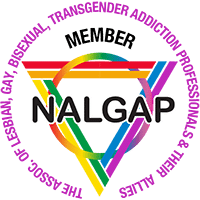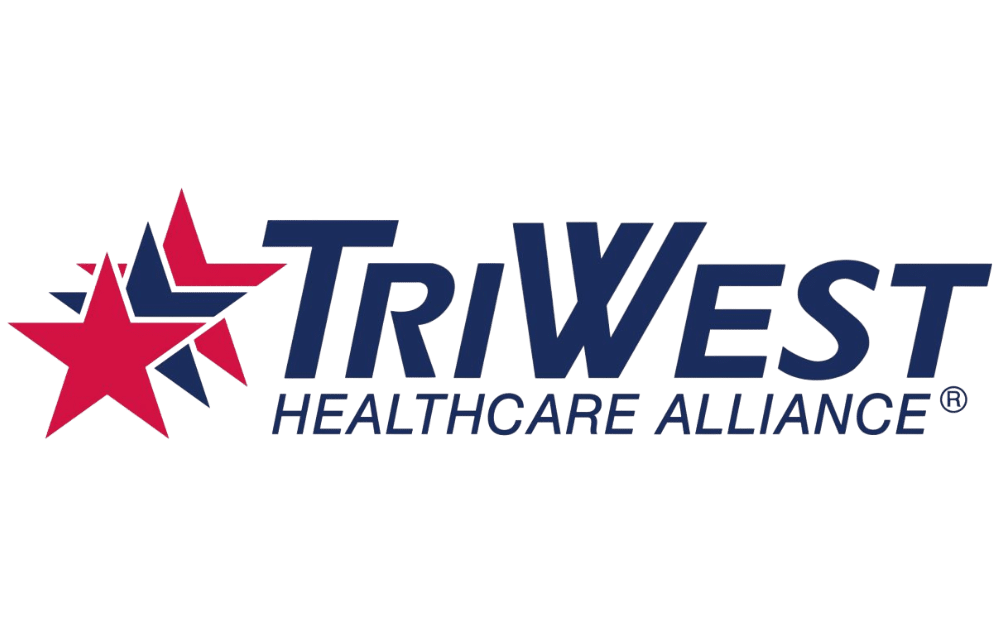Rehab in Colorado
Personal Insights and Professional Experiences
At Mile High Recovery Center, I’ve witnessed countless transformations. Each story of recovery is a testament to the resilience of the human spirit, and every client brings a unique perspective to our community. With firsthand experience, both personal and professional, I understand that the journey of overcoming addiction is not linear. It’s filled with challenges and breakthroughs alike. Our approach combines the wisdom of lived experiences with clinical expertise to provide a supportive environment where clients can feel fully understood and accepted.
Having worked in the addiction treatment field for several years, the importance of a compassionate and individualized treatment plan has never been clearer. I’ve seen how clients respond to programs that honor their unique stories and needs. By integrating evidence-based therapies with experiential modalities, we connect with clients on an emotional level, guiding them through each step of their recovery.
In my professional journey, the most rewarding aspect has been the impact of our alumni community. Clients don’t just leave our program; they become part of a supportive network that reinforces their commitment to sobriety. Sharing in their success stories and continued growth underscores the value of long-term recovery strategies.
Exploring Rehabilitation Options
When considering Rehab in Colorado, it’s vital to weigh your options. Each facility offers distinct advantages, and understanding these can help make an informed decision. At Mile High Recovery Center, we pride ourselves on our comprehensive range of services. From residential treatment to outpatient programs, our offerings are designed to meet the diverse needs of our community.
Colorado boasts a variety of rehabilitation centers, each offering a unique approach to recovery. What sets us apart is our holistic methodology. We address both the physical symptoms of addiction and the underlying psychological conditions. Dual-diagnosis treatment is a cornerstone of our program, allowing us to treat co-occurring disorders such as PTSD, bipolar disorder, and anxiety.
The state’s stunning landscapes also contribute to the therapeutic process. Outdoor activities like hiking and adventure therapy are integral to our treatment model, encouraging clients to reconnect with nature and their inner peace. These experiences foster personal growth and resilience in ways that traditional therapies alone may not.
Understanding the therapeutic techniques and environments offered by various centers is crucial. Whether you’re drawn to urban amenities or peaceful retreats, the options for Rehab in Colorado are expansive and diverse, tailored to nurture recovery in the most effective way.
Integrating Clinical Therapies
Our treatment philosophy at Mile High Recovery Center emphasizes the importance of clinical therapies. We incorporate evidence-based methods such as Cognitive Behavioral Therapy (CBT) and Dialectical Behavior Therapy (DBT) to help clients develop effective coping strategies. These approaches are crucial in reframing negative thought patterns and improving emotional regulation.
Aside from traditional therapies, we offer Eye Movement Desensitization and Reprocessing (EMDR) for trauma recovery. This innovative technique has shown remarkable results in alleviating distress from traumatic memories. Clients often express a newfound sense of freedom after overcoming the emotional barriers associated with past experiences.
Additionally, Motivational Enhancement Therapy (MET) plays a significant role in our program. By enhancing clients’ motivation to change, MET empowers individuals to take charge of their recovery journey. The therapy involves empathetic listening and strategic questioning, which helps clients vocalize their desire for change.
Experiential Modalities for Recovery
Experiential learning is a key component of our program. By engaging in activities like adventure therapy and equine-assisted therapy, clients learn valuable life skills in a hands-on environment. These modalities encourage self-discovery and personal reflection, making them highly effective in fostering long-term recovery.
Adventure therapy, in particular, challenges clients physically and mentally. Activities such as rock climbing and hiking cultivate perseverance and teamwork. Clients often report a significant boost in self-esteem, translating to a stronger belief in their ability to overcome addiction.
Meanwhile, equine-assisted therapy offers a serene environment for emotional growth. Interactions with horses require trust and communication, mirroring the interpersonal skills needed in daily life. Clients develop empathy and self-awareness, valuable traits that enhance their relational dynamics.
Nutrition and Wellness Support
Nourishing the body is as important as healing the mind. At our center, we provide nutrition education to assist clients in making healthy lifestyle choices. Proper nutrition supports mental health, boosts energy levels, and promotes physical well-being, all of which are crucial in maintaining sobriety.
Our wellness programs include personalized diet plans that cater to individual needs, ensuring that each client’s journey is supported by the best possible dietary practices. Regular workshops on cooking and meal preparation build practical life skills, encouraging clients to view food as an ally in their recovery.
Furthermore, our center offers yoga and meditation sessions as part of our wellness initiative. These practices enhance clients’ mindfulness, helping them to remain present and focused. The combination of physical activity and mental tranquility aids in stress reduction and emotional balance.
Accommodation and Supportive Housing
Understanding the importance of a stable environment, we offer a range of supportive housing options. Our integrated housing-to-treatment pipeline provides a seamless transition from rehabilitation to independent living, reducing the risk of relapse. This structure offers clients a secure space to practice new skills acquired during treatment.
Our sober living homes are more than just accommodation; they are communities of individuals committed to their recovery. Residents support each other in maintaining a sober lifestyle, creating a network of accountability and friendship. This environment fosters a sense of belonging and reduces feelings of isolation often experienced in early recovery.
In addition to housing, we provide comprehensive alumni support. Our active alumni community keeps former clients engaged and motivated. Regular meet-ups and events ensure that they remain connected, reinforcing their commitment to sobriety and offering encouragement to those still on their journey.
Treatment for a Range of Substances
At Mile High Recovery Center, we treat a wide spectrum of substance use disorders. From alcohol addiction to opioid dependence, each client receives a tailored treatment plan that addresses their specific needs. This personalized approach is essential in achieving lasting recovery.
We recognize that every substance presents unique challenges. For this reason, our programs are designed to tackle the nuances of each addiction, including the psychological and physiological effects. Whether it’s opioids, methamphetamines, or prescription drugs, our team is equipped with the knowledge and tools to support recovery for each.
The use of Medication-Assisted Treatment (MAT) is part of our comprehensive strategy. Medications like Suboxone and Vivitrol are used to manage withdrawal symptoms and cravings. Paired with behavioral therapies, MAT significantly increases the chances of sustained recovery.
Community Engagement and Urban Accessibility
Being located in Denver, Mile High Recovery Center has the advantage of urban accessibility and community engagement. Our central location allows clients to participate in city life while remaining in a supportive therapeutic environment. Clients benefit from both proximity to urban amenities and access to outdoor therapeutic activities.
The city setting offers ample opportunities for clients to engage in community events and social gatherings, helping them reintegrate into society with confidence. This balance between structure and freedom is crucial in preparing clients for life beyond rehab.
Through partnerships with local healthcare providers and insurers, we ensure that transitions of care are handled smoothly. By coordinating with external services, we build strong referral relationships that support ongoing client needs, contributing to sustained recovery post-treatment.
What makes personal insights and professional experiences valuable in a rehabilitation setting?
Personal insights and professional experiences form the bedrock of a compassionate and effective rehabilitation environment. At Mile High Recovery Center, we’ve seen that these elements create a profound connection between clinicians and clients. Having walked the path of recovery themselves, many of our staff can relate to the challenges faced by those in treatment, fostering an atmosphere of empathy and understanding. This lived experience, coupled with professional expertise, helps tailor treatment plans to the unique stories and needs of each client. It’s not just about academic knowledge; it’s about understanding the emotional and practical realities of addiction, which can often be the key to unlocking successful recovery outcomes.
How should one approach exploring rehabilitation options in Colorado?
Exploring rehabilitation options in Colorado involves understanding the diverse landscape of services available. From residential programs to outpatient care, facilities like ours, Mile High Recovery Center, offer a range of treatments designed to meet varying needs. A critical component is understanding the unique methodologies each center employs. For example, holistic approaches that treat both the physical and psychological aspects of addiction can be particularly effective. Colorado’s natural beauty also offers therapeutic outdoor experiences, which can be integral to personal growth and healing. When considering options, think about the environment that will best support your recovery–whether that’s the serenity of nature or the vibrancy of an urban setting.
What role do clinical therapies play in addiction treatment?
Clinical therapies are pivotal in addiction treatment as they provide structured, evidence-based methods to address the psychological aspects of addiction. At our center, we utilize Cognitive Behavioral Therapy (CBT) and Dialectical Behavior Therapy (DBT) among others, which help clients develop healthier coping mechanisms and emotional regulation. These therapies are essential in reframing negative thought patterns and fostering a more balanced emotional state. Additionally, techniques like Eye Movement Desensitization and Reprocessing (EMDR) allow clients to process trauma effectively, often leading to a sense of relief and empowerment. Therapies not only address current challenges but equip clients with tools for long-term sobriety.
How do experiential modalities contribute to recovery?
Experiential modalities, such as adventure therapy and equine-assisted therapy, offer dynamic ways to engage clients in the recovery process. These approaches encourage self-discovery and personal reflection by taking therapy beyond traditional settings. For instance, adventure therapy challenges clients to push their physical and mental limits, thereby building resilience and self-confidence. Equine therapy, on the other hand, focuses on developing trust and communication, crucial skills for personal relationships. At Mile High Recovery Center, we’ve observed that these hands-on experiences often lead to breakthroughs that conventional therapies alone may not achieve, illustrating the multifaceted nature of effective rehabilitation.
Why is nutrition considered an essential aspect of rehabilitation?
Nourishing the body is as essential as healing the mind. Proper nutrition plays a crucial role in enhancing physical well-being and mental clarity. At Mile High Recovery Center, we emphasize nutrition education, understanding that a balanced diet can bolster mood, increase energy, and support overall health. Personalized diet plans cater to individual needs, ensuring each client’s recovery is well-rounded. Moreover, we incorporate wellness practices like yoga and meditation to complement nutritional efforts, promoting mindfulness and stress reduction. These holistic elements help create a stable foundation for maintaining sobriety.
What benefits does supportive housing offer in addiction recovery?
Supportive housing provides stability, which is crucial in early recovery. It offers a secure environment where individuals can practice life skills and apply coping strategies learned during treatment. Our integrated housing-to-treatment pipeline at Mile High Recovery Center minimizes the risk of relapse by creating a seamless transition from rehabilitation to independent living. Moreover, our sober living homes foster community and accountability, where residents support each other in their recovery journey. This sense of community reduces isolation and builds a network of friendship and shared commitment to sobriety.
How does Mile High Recovery Center tackle treatment for a range of substance use disorders?
At Mile High, we understand that each substance presents unique challenges and requires tailored treatment plans. Our approach includes Medication-Assisted Treatment (MAT) for managing withdrawal symptoms and cravings, particularly for opioids and alcohol. This is combined with behavioral therapies to address the psychological aspects of addiction. We provide comprehensive care for a variety of substances, including alcohol, opioids, methamphetamines, and cannabis, ensuring each client’s specific needs and circumstances are addressed. By treating co-occurring mental health conditions through our dual-diagnosis services, we aim for holistic recovery outcomes.
How does urban accessibility enhance rehabilitation efforts?
Urban accessibility offers clients at Mile High Recovery Center the opportunity to engage with the community while receiving treatment, fostering a sense of normalcy and integration. Being located in Denver enables access to cultural and community events, which can be instrumental in the reintegration process following treatment. It’s about balancing the structure of a therapeutic environment with the freedom to participate in city life. This balance helps prepare clients for life beyond rehabilitation, supporting them as they build confidence and independence. Moreover, our strategic partnerships with local healthcare providers ensure comprehensive care continuity, enhancing long-term recovery success.
Resources
- Substance Abuse and Mental Health Services Administration (SAMHSA) – SAMHSA is a government agency that leads public health efforts to advance the behavioral health of the nation.
- National Institutes of Health (NIH) – The NIH is the primary agency for conducting and supporting medical research in the United States.
- National Institute on Drug Abuse (NIDA) – NIDA is a governmental research institute that aims to advance science on the causes and consequences of drug use and addiction.
- Centers for Disease Control and Prevention (CDC) – The CDC is a national public health institute that works to protect public health and safety through the control and prevention of disease, injury, and disability.
- MentalHealth.gov – MentalHealth.gov provides information on mental health and resources for those in need of support.
















